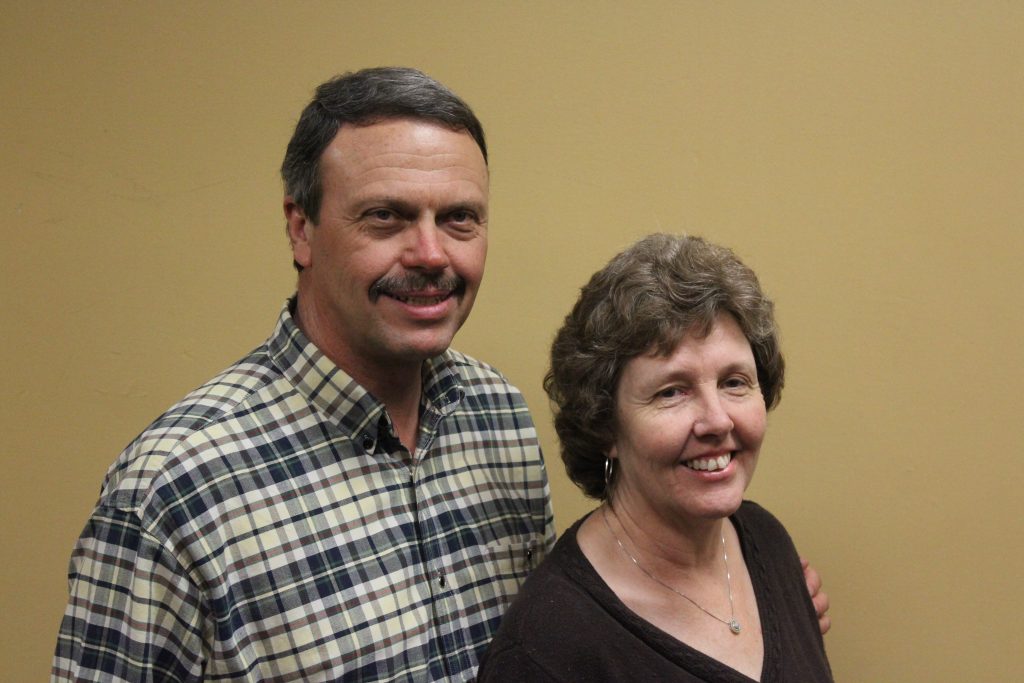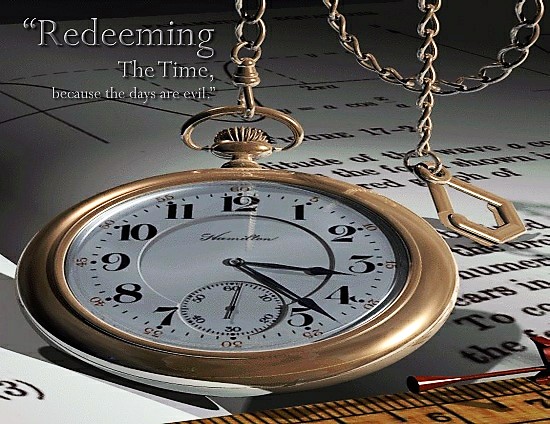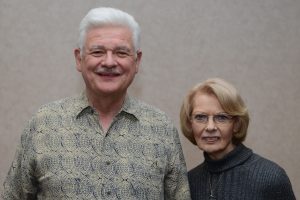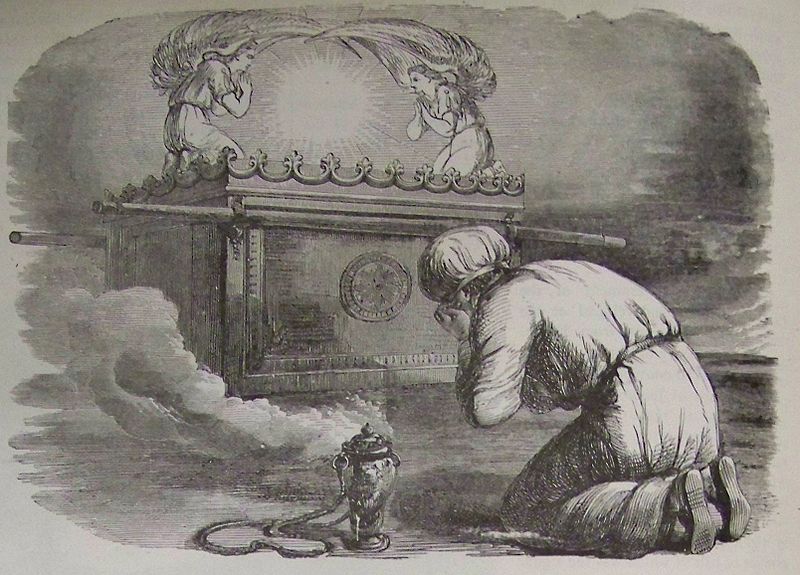Here, from Mission Developer John McLean, is a video report on GCI’s work in Australia. John emphasizes that mission must start (and continue) by connecting relationally (incarnational ministry!).
On YouTube at https://youtu.be/g1TBIoaro10.
Here, from Mission Developer John McLean, is a video report on GCI’s work in Australia. John emphasizes that mission must start (and continue) by connecting relationally (incarnational ministry!).
On YouTube at https://youtu.be/g1TBIoaro10.
In a helpful post on the CT Pastors blog, Marty Duren addresses six dos and don’ts concerning welcoming visitors to church. To read Marty’s post, click here.

This summer, SEP UK celebrated its 50th year of holding youth camps in Scotland. Here is a video update from James Henderson, GCI leader in the UK and Europe:
On YouTube at https://youtu.be/0Escqe4N5aE.

Prayer is requested for David Weber, pastor of GCI’s congregation in Wheatland, Wyoming. The retinas in both of David’s eyes became detached. The one least severely detached was repaired earlier this week with a laser procedure. The more severely detached one will be repaired later this week in surgery. David will then have to lie face-down for a week as he recovers. Please pray for a successful and rapid recovery—in addition to pastoring a church, David works full-time leading his construction company, and takes care of the family farm.
Cards may be sent to:
David Weber
679 Deer Creek Rd
Wheatland, WY 82201-8817
Dear Brothers and Sisters,

Rosh Hashanah begins this week at sundown, September 20. A festival with multiple meanings, the Jews celebrate it as New Year’s (Rosh Hashanah means “head [beginning] of the year”). It also commemorates the creation of Adam and Eve. According to Jewish tradition, when God “blew” the soul into Adam, the sound made was like the blowing of the trumpet-like shofar, which in ancient Israel announced this festival (Leviticus 23:23-24). Rosh Hashanah is also considered the anniversary of the creation of the universe, which means that it commemorates the beginning of time.
While reading about time, I was reminded that it too has multiple meanings. One is that time is an asset, shared equally by billionaires and beggars. We all have 86,400 seconds each day, and since we can’t bank them (time can neither be overdrawn nor retrieved) the question for us is this: How will we spend the time we have?
Understanding the value of time, Paul, in Eph. 5:16 (KJV), exhorted Christians to be “redeeming the time.” Before I unpack his meaning, let me share a poem about time’s great value:
Realize (author unknown)
To realize the value of one year, ask a student who has failed an exam.
To realize the value of one month, ask a mother who has given birth to a premature baby.
To realize the value of one week, ask an editor of a weekly newspaper.
To realize the value of one hour, ask the lovers who are waiting to meet.
To realize the value of one minute, ask a person who missed the train, bus or plane.
To realize the value of one second, ask a person who has survived an accident.
To realize the value of one millisecond, ask the person who has won a silver medal in the Olympics.
Time waits for no one.
Treasure every moment you have.
You will treasure it even more when you can share it with someone special.
This poem makes a point about time similar to the one Paul makes in Ephesians 5. In the Greek New Testament, there are two words that we translate as redeem. One is agorazo, which refers to buying something in the agora—the normal marketplace. The other is exagorazo, which refers to buying something elsewhere. Paul uses exagorazo in Eph. 5:15-16 (NIV) to exhort us to, “Be very careful, then, how you live—not as unwise but as wise, making the most of every opportunity, because the days are evil.” I enjoy the King James translation, which speaks of “redeeming the time.” It seems that Paul is urging us to redeem the time outside the normal market exchange.

While we don’t use the word redeem much today, it used to be a common business term, literally meaning “to buy up or buy back.” If a person could not pay a debt, they could make arrangements to become servant to the person they owed until the debt was paid. Their servitude could also be ended if someone would pay the debt on their behalf. Debtors who were bought out of servitude this way were said to have been “redeemed.” (We think here of how Jesus redeemed us, but that’s another topic.)
Property could also be redeemed—just like we see in pawnshops today. On one hand, you could say Paul is telling us to buy—redeem—the time. On the other hand, since the context of Paul’s instruction is to be followers of God, we can also say Paul is seeking to focus our attention on the One who has redeemed the time for us. His point is that we don’t have time to waste by focusing on anything other than Jesus and the work he has invited us to share in.
Wuest’s Word Studies in the Greek New Testament (Vol. 1) has this comment on Ephesians 5:16 (KJV):
“Redeeming” is exagorazō (ἐξαγοραζω), “to buy up.” In the middle voice as it is used here, it means, “to buy up for one’s self or one’s advantage.” Metaphorically, it means, “to make a wise and sacred use of every opportunity for doing good,” so that zeal and well-doing are as it were the purchase-money by which we make the time our own” (Thayer). “Time” is not chronos (χρονος), “time as such,” but kairos (καιρος), “time as regarded in its strategic, epoch-making, seasonable, opportune seasons.” The idea is not to make best use of time as such, which is what we should do in the sense of not wasting it, but of taking advantage of the opportunities that present themselves.
Because time is not normally viewed as a commodity that can literally be redeemed, we understand Paul to be speaking metaphorically, saying, in essence, that we are to make the best use of the situation we are in. When we do that, our time will have far greater meaning, significance and thus “payoff.”
As a part of God’s creation, time is God’s gift to us. Some have more of it, and some less. Due to medical advances, good genetics and God’s blessing, many of us will live into our 90s and a few past 100. Recently we heard of the death of a 146-year-old man in Indonesia! But no matter how much time God gives us, as I mentioned in my August 30th letter, Jesus is Lord of time. Through the Incarnation, the eternal Son of God came from eternity into time. Thus Jesus experiences created time differently than we do. Our time, being created, is limited in duration, while God’s time, being uncreated, is unlimited. God’s time is not sequenced, as is ours, into past, present and future. God’s time is also of a different quality—a kind of time we cannot fully grasp. What we can (and should) do, is live in our time, secure in the hope of joining our Creator and Redeemer in his time, which is eternity.
When we speak metaphorically of time, saying things like, “don’t waste time,” we are implying that in some way we can lose the correct use of our precious time. This happens when we allow someone or something to make us use time in ways or for purposes we don’t value. It’s in this metaphorical sense that Paul speaks of “redeeming the time.” He is exhorting us to not misuse or waste time in ways that fail to contribute to what is valuable to God and thus valuable to us as Christians.
In that vein, when we refer to “redeeming the time,” we must remember that our time is redeemed or recovered first by God’s forgiveness through Christ. It then continues to be redeemed as we properly use our time to contribute to a growing relationship with God and each other. That redemption of time is God’s gift to us. When Paul exhorts us in Ephesians 5:15 (KJV) to “walk circumspectly not as unwise but as wise,” he is telling us to buy up the opportunities that time affords us in order to honor God.
God has given us time to walk in his light, co-ministering in the Spirit, with Jesus, in advancing God’s mission. To do so, we have been given the “time between the times” of Christ’s first and second advents. Our mission in that time is to assist others in seeking and knowing God—helping them live by faith and love, secure in the hope that, in the end, God will have completely redeemed all creation, time included.
My prayer for us in GCI is that we will be redeeming the time that God has given us by faithfully living and sharing the gospel of God’s redemption in Christ.
Thankful for God’s gifts of time and eternity,
Joseph Tkach
PS: At the time this is being posted, we await final word concerning our members in the Caribbean (impacted by Hurricane Maria) and Mexico (impacted by the recent earthquake). Initial reports from our pastors in Mexico City and Tlaxcala (areas impacted by the earthquake) is that our members, perhaps with a few exceptions, are OK. Please join me in praying for all who are in harm’s way as the hurricane continues, and as earthquake aftershocks occur. We will let you know of any financial needs that arise that we can assist with through the GCI Disaster Relief Fund.

We have learned that GCI pastor Richard Frankel recently suffered a minor stroke and spent one night in the hospital. Though his speech is slighlty slurred, the doctors feel it will return to normal within the next week or so. Thanks for praying for his complete and rapid recovery.
Cards may be sent to:
Richard and Joyce Frankel
6905 67th Street
Unit 214
Kenosha WI 53142
An article in the September 11 issue of USA Today made this observation concerning the recent hurricanes that have devastated parts of the United States and several Caribbean nations:
Forecasters said the 2017 Atlantic hurricane season would be above average, though we couldn’t have imagined how catastrophic it would be. Hurricane Irma barreled into Florida Sunday and millions of people are without power. Irma earlier chewed through a string of Caribbean islands, causing massive damage there. Before that, Hurricane Harvey plowed into Texas in late August, causing major flooding in Houston, Beaumont and Port Arthur and projected to be the costliest natural disaster in U.S. history. Next up is Hurricane Jose, which weather models suggest could move toward the East Coast, but any direct hit — if it does make landfall — won’t happen until next week.

We reported last week on how our members in Texas and Louisiana fared in the aftermath of Harvey. We are still waiting to hear from all our pastors in the areas affected by Irma, but so far it seems that our members fared relatively well. Here are excerpts from the reports we’ve received so far:
From Charles Fleming (Caribbean Mission Developer)
Irma did extensive damage to a number of islands in the North-Eastern Caribbean. Most of the worst devastation occurred on islands where we do not have members. Cleaning up and re-building on islands like Barbuda and St. Martin will be a long, difficult process. Our prayers go out on behalf of those who suffered. From all the reports I have received, none of our members suffered any serious loss. For that we are extremely thankful.
From Robert McKinney (pastor in the Bahamas)
Thank God for the mercy he showed us here in Nassau. We only received winds of about 25 m.p.h. and sustained only minimal damage. In fact, we were able to have church yesterday. The main Bahamian island hardest hit was Ragged Island which suffered severe damage. Every house and building on the island was impacted. Our 91-year -ld member there, Louise Curling, and her daughter Clarice Wood, had to be evacuated along with several others ahead of the storm. But we are all fine and thanking God for his abundant mercies.
From Charles Taylor (pastor in Miami, FL)
We are doing good—power came back yesterday (Sept. 11). We spent the day clearing some fallen trees that blocked the roads in the community and cleaning up debris. Most of the members who I’ve been able to contact are doing fine with minimum damage. Some still don’t have power or water so continue to pray.
From Marty Davey (pastor in Jacksonville, FL)
We are all fine here in Jacksonville. The worst is past, but it’s still windy and some flooding will get worse along the St. John’s River as the day goes on. I talked to our pastor in Naples and he and his wife came through fine, although they have been without power since Saturday.
The GCI Disaster Relief Fund provides members in disaster areas with emergency needs such as food, water, medicine, clothing, temporary housing, home and/or church hall repairs, temporary local pastoral salary expenses and other emergency needs. Monies received into the Fund that are not immediately needed will remain in the Fund to be allocated in future disasters. In previous years, money from the Fund was used to help members recover from Hurricane Katrina in New Orleans, storms and flooding in Bangladesh, an earthquake and tsunami in the Solomon Islands, typhoons in the Philippines and an earthquake in Haiti.
If your congregation would like to donate to the Fund, your treasurer can set up a one-time or monthly donation through the GCI-Online system (http://online.gci.org) by logging in and clicking on Donate under the Manage tab.
If your congregation prefers to send a check, make it out to Grace Communion International, indicating on the memo line that the donation is for the GCI Disaster Relief Fund. The donation should be sent to:
GCI Disaster Relief Fund
Grace Communion International
P.O Box 5005
Glendora, California 91740
Dear Brothers and Sisters,

Our thoughts and prayers continue to be with those recovering from hurricane Harvey and now from hurricane Irma. For information concerning the impact of Irma on our members in the Caribbean and the U.S., click here.
Let’s turn now to a topic that needs to be addressed from time to time. It involves two aberrant teachings that advocate esoteric religious practices for Christians. Both come with the promise that those who adopt the advocated practice will gain favor with God. The first is known as the “sacred names” doctrine, and the second teaches that Christians must observe the holy days God gave Israel through Moses.
Though the Bible does not teach that the Hebrew language (or any language, for that matter) is sacred, the sacred names doctrine asserts that God must be addressed using the Hebrew name Yahweh and Jesus must be addressed using the Hebrew name Yahshua. The falsity of this assertion is seen by noting that by inspiring the New Testament to be written in Greek, God has clearly shown that the Hebrew language is not required to hear an authoritative and life-giving word from him. Understanding this to be true, the Jews translated the Old Testament into Greek, producing what is known as the Septuagint. Many of the quotations of the Old Testament in the New Testament are from the Septuagint.
Human languages, being created things, are not sacred, nor are they magical—they have no special power in and of themselves. Human languages do not operate as mediators controlling access to God or his blessings. Treating created things as if they had such powers is idolatry. While Scripture is God’s inspired Word, its words (in any language) have no power apart from the action of the living God by his Spirit. Though the language used in writing Scripture is God’s gift, it is not one that should control (in either a legal or a magical way) our relationship to God.
Most of us are familiar with the annual cycle of festivals set out for Israel by God in the Law of Moses (see the chart below). As a focus of this worship, Israel was required to perform various ceremonial duties—kill a lamb and put its blood on the doorposts at Passover, remove leaven from their property for the week of Unleavened Bread, blow shofars to announce the arrival of the New Year on Trumpets, fast on Atonement, and live in temporary dwellings throughout Tabernacles.
Some well-meaning Christians try to observe Israel’s holy days to varying degrees, thinking that God is more pleased with the Christians who do so. These folks seem unable to grasp the biblical teaching that the purpose of the worship practices given to Israel was to point them to Jesus and his atoning ministry—a ministry that has already been accomplished, and thus fulfilled. It is Jesus’ shed blood that secures our forgiveness—not killing and eating a ritual lamb. It is Jesus who cleanses us from sin, not deleavening our homes. It is Jesus who trumpets our salvation, not the blowing of shofars. Because Jesus is our eternal dwelling place, there is no need to dwell in temporary booths. Now that Jesus has come and completed his work of salvation, observance of these holy days can actually point people away from Jesus to their own works.
As an example, consider the observance of the Day of Atonement (known to the Jews as Yom Kippur). It begins this year at sundown on Friday, Sept. 29. This day of fasting was considered the most holy of all of Israel’s festivals, and so was a principal focus of Israel’s annual worship cycle. Unfortunately, some Christians think God commands them to observe this day so that they might receive God’s forgiveness and so be cleansed from sin. In doing so, they overlook the New Testament’s teaching that we in no way contribute to our salvation, nor do we maintain it through works of the Law of Moses (including observing Israel’s holy days).
Believing that we must fast on Yom Kippur in order to be atoned for, negates the all-sufficient atonement that Jesus already has provided for the sins of the world. To observe the Day of Atonement as if it were required for Christians would be to say that Jesus’ completed, atoning work is somehow not enough—that we must somehow atone for ourselves. But note what is said to the contrary in the book of Hebrews:
For Christ did not enter a sanctuary made with human hands that was only a copy of the true one; he entered heaven itself, now to appear for us in God’s presence. Nor did he enter heaven to offer himself again and again, the way the high priest enters the Most Holy Place every year with blood that is not his own. Otherwise Christ would have had to suffer many times since the creation of the world. But he has appeared once for all at the culmination of the ages to do away with sin by the sacrifice of himself. (Heb. 9:24-26)
God gave Yom Kippur to Israel as a map pointing them forward towards the relationship that God, through Christ, would have with all humanity. By fasting, Israel acted out the reality of our need for the never-ending eternal life that is ours in and through Christ who, alone, is our atonement. If one discontinues eating for a lengthy time, death results. Fasting thus symbolizes passing from life to death. The symbolism then comes full-circle when eating (picturing the return to life) commences at the close of the Day of Atonement. Those who have fasted for 24 hours know how good food tastes after a fast!

In ancient Israel, Yom Kippur was the only day of the year when the High Priest was permitted to enter the Holy of Holies (sometimes called the Most Holy Place)—the inner chamber of the Temple pictured above. Because of this, Jewish Midrash (commentaries on Scripture) associate Yom Kippur with the ancient Jewish idiom, face-to-face. Not surprisingly, the apostle Paul, who knew these commentaries well, spoke this way of our relationship with God through Christ:
For now we see only a reflection as in a mirror; then we shall see face to face. Now I know in part; then I shall know fully, even as I am fully known. (1 Cor. 13: 12)
Jews view Yom Kippur as the day on which people are closest to God. The Jewish website www.chabad.org says, “[it is] the day on which we are the closest to G-d and to the quintessence of our own souls.” Leviticus 16:30 says, “On this day atonement will be made for you, to cleanse you. Then, before the Lord, you will be clean from all your sins.” These are precisely what are ours through Jesus’ atoning work on our behalf. Through Jesus’ life, death, resurrection and continuing high priestly ministry in heaven, we are cleansed from sin and reconciled to God. Note Paul’s comment:
All this is from God, who reconciled us to himself through Christ and gave us the ministry of reconciliation: that God was reconciling the world to himself in Christ, not counting people’s sins against them…. God made him who had no sin to be sin for us, so that in him we might become the righteousness of God. (2 Cor. 5:18-19, 21)
In Jesus, through his once-for-all atonement, we have come face-to-face with the Living God. We trust in him to be God’s presence to us and with us. He is our great High Priest and God’s own atonement, who mediates to us our fellowship and communion with the living God.
Celebrating that Jesus’ work is both abundant and more than adequate for us all,
Joseph Tkach
This week, GCI’s blog, The Surprising God, marks ten years of exploring the content and application of incarnational Trinitarian theology. The first post was written by GCI Pastor Timothy Brassell, and GCI Publications Editor Ted Johnston has managed the blog and been its principal author since late 2007. For more details about the blog, click here.
In advance of the upcoming 500th anniversary of the Protestant Reformation, Grace Communion Seminary faculty member, Dr. Dan Rogers, has prepared a presentation on the background and results of this momentous event in Christian history. To download Dan’s presentation in PowerPoint, click here. To download it in PDF, click here.

Dan notes that his presentation is a limited review of the Reformation and related topics that doesn’t cover all the relevant issues. For more detailed information, Dan recommends that we consult books on church history such as The Story of Christianity by Justo Gonzalez.